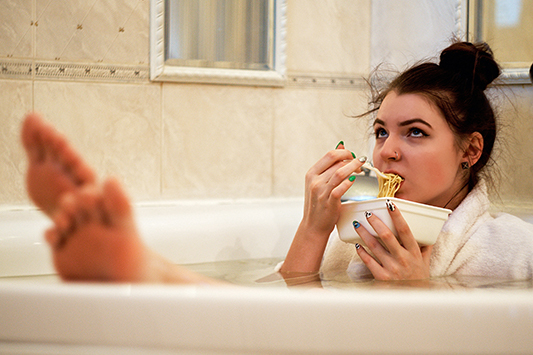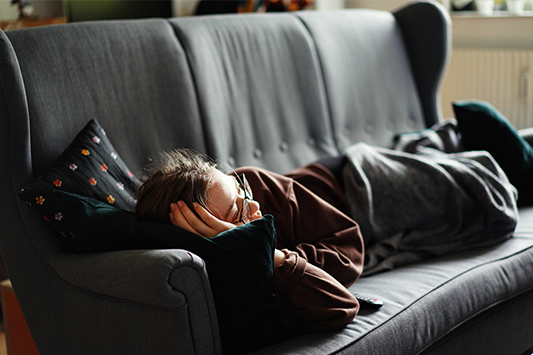Can the wrong diet mess with your mind?

Not quite. But there is plenty of evidence that what you eat can have a remarkable impact on your moods, reasoning, stress responses, addictions and so much more that fuels your mental wellbeing. Two leading nutritional scientists, Julia Rucklidge and Bonnie Kaplan, recently shared their expertise and research in a newly published book, The Better Brain, which explores how the symptoms of anxiety, depression, ADHD, PTSD and more are influenced by suboptimal nutrition. The book details a wealth of research showing micronutrient supplementation can benefit positive effects for symptoms of anxiety, depression and stress, including the SMILES study, where an improved diet led to 32 percent of those with major depression becoming depression-free in just 12 weeks (compared to just eight percent of those who received standard social support care). The authors highlight the benefits of a diet rich in fresh fruits, vegetables, pulses, fish and olive oil. This will feed your brain to stabilize your mood, stave off depression and make yourself more resilient to daily stress.
What’s the best type of sedentary activity?

We’re constantly bombarded with the message that we need to step away from the sofa to cut sedentary time. So it’s no surprise to see more research showing that replacing sedentary time with physical activity is good for your cardiovascular health. But this research is different. While it highlights the health benefits of physical activity, this research also suggests that replacing sedentary time with sleep (arguably the most sedentary type of activity possible) is beneficial. The researchers found those who substituted 30 minutes of sedentary time a day with sleep had a lower body mass index (which is linked to favorable cardiovascular health and lower risk factors for cardiovascular disease). So, if you’re going to spend time being sedentary, this research suggests you should do a good job of it and go to sleep – nodding off on the sofa could be a healthier option than mindlessly watching TV.
You can learn expert advice on how to get the maximum benefit from your sleep here.
Why intense training is a winner for women

As women age, there is a reduction in the number of the smallest blood vessels. This can hinder oxygen delivery to working skeletal muscle and reduce physical capacity. A recent study sought to determine if a woman’s physical activity levels in the 20-plus years before menopause had any effect on reduced skeletal muscle oxygen supply. Working with post-menopausal women, researchers analyzed activity levels, collected muscle arterial and venous blood samples to determine capillarization and capillary growth, and did exercise tests to determine oxygen delivery and uptake. It was no surprise that those who had been most active (four-plus hours a week of moderate to high-intensity training) had the healthiest capillaries and the best uptake of oxygen during exercise. What was unexpected was that those who had been moderately active had no better muscle capillarization and oxygen delivery than the sedentary group. And, in a separate study, the same researchers found that only the very active women (not the moderately activate) had an improved cardiovascular health profile, including arterial function, blood cholesterol and blood pressure. This suggests that, while exercise at low to moderate intensity is valuable, higher intensity exercise provides benefits that other types of exercise cannot.
Couches present severe Covid risk

Think you're safest staying put at home on your sofa? Think again. A new study shows that couch potatoes are up to two and a half times more likely to be killed by Covid-19. Experts recently compared the outcomes for 48,440 Covid-19 patients and found that inactivity is the third biggest risk factor for severe illness. Being inactive presents greater risk than smoking, or having heart disease or diabetes – only old people or organ transplant recipients are in greater danger. Researcher Dr. Robert Sallis explains that patients who, before illness, consistently met the physical activity guidelines of 150 minutes per week had lower odds of being hospitalized, requiring ICU admission and dying from Covid-19. “Short of vaccination and following public health safety guidelines such as social distancing and mask use, engaging in regular physical activity may be the single most important action individuals can take to prevent severe Covid,” says Sallis.








